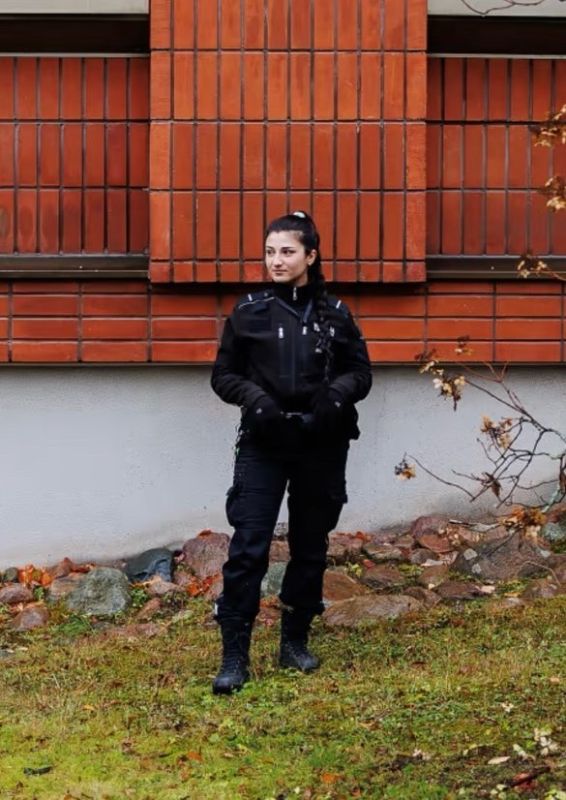Guard
"A guard must trust their own skills. In my work, the essential thing is patience and the ability to interact and talk to different people so that threatening situations do not get worse."

- Berivan Suleiman
- A guard at Avarn Security Oy.
- Has completed the Vocational Qualification in Safety and Security at Stadin AO, Helsinki Vocational College and Adult Institute.
- Three years of work experience in the field.
Briefly explain what you do for a living.
I work as a security guard. My duties include the protection of persons, maintaining order, ensuring safety and preventing crime and accidents.
How have you ended up in the profession of your choice?
Since I was a child, I have dreamt of working as an official, such as a police officer, border guard or guard. In Finland, I was given the opportunity to make some of my dreams come true and started working as a guard. I am still waiting for my Finnish citizenship so that I can apply to the Police University College.
Describe your typical working day or week.
My workdays vary and include a lot of customer service. A typical working day includes supervision and ensuring safety at the guarding site. Some days are heavier, especially when people are not cooperative and challenging situations occur.
What kind of work environment or working hours do you have?
I work in different environments, as the guarding sites vary. I work in the morning and evening shifts. Unlike most guards, I don't do night shifts for family reasons.
What kind of competence or qualities are required in the profession?
A guard must trust their own skills. In my work, the essential thing is patience and the ability to interact and talk to different people so that threatening situations do not get worse. Negative and offensive comments are common, but they just need to be ignored. One’s own attitude is very important.
What is the best thing about your profession?
The best thing about this profession are the colleagues and learning skills that can also help in civilian life, as the development of speech skills, for example, improves self-confidence.
What are the downsides of the profession or what seems challenging?
Feedback from dissatisfied customers feels heavy. Furthermore, as a foreigner, I sometimes hear racist comments that I must tolerate.
What would you tell a person considering the profession of a guard?
You can never find out which profession is suitable for you if you do not try different alternatives. As a guard, you must be patient, because the work is challenging especially at the beginning. Over time, the work becomes easier if you do not give up immediately.
How do you see the future of your profession?
I hope that the future will be bright. At least security companies seem to grow, so there will probably be plenty of work to do in the future.
